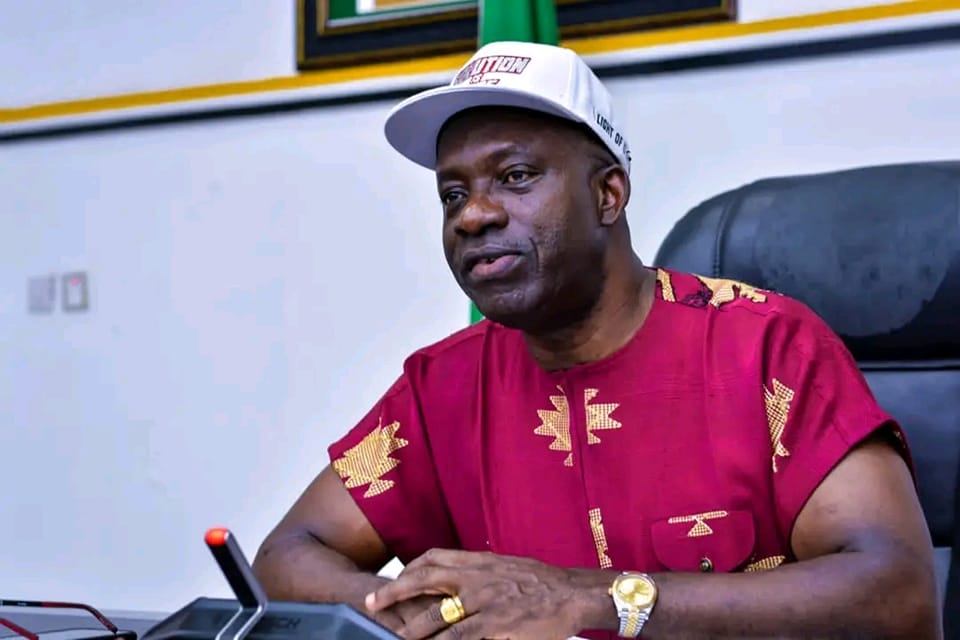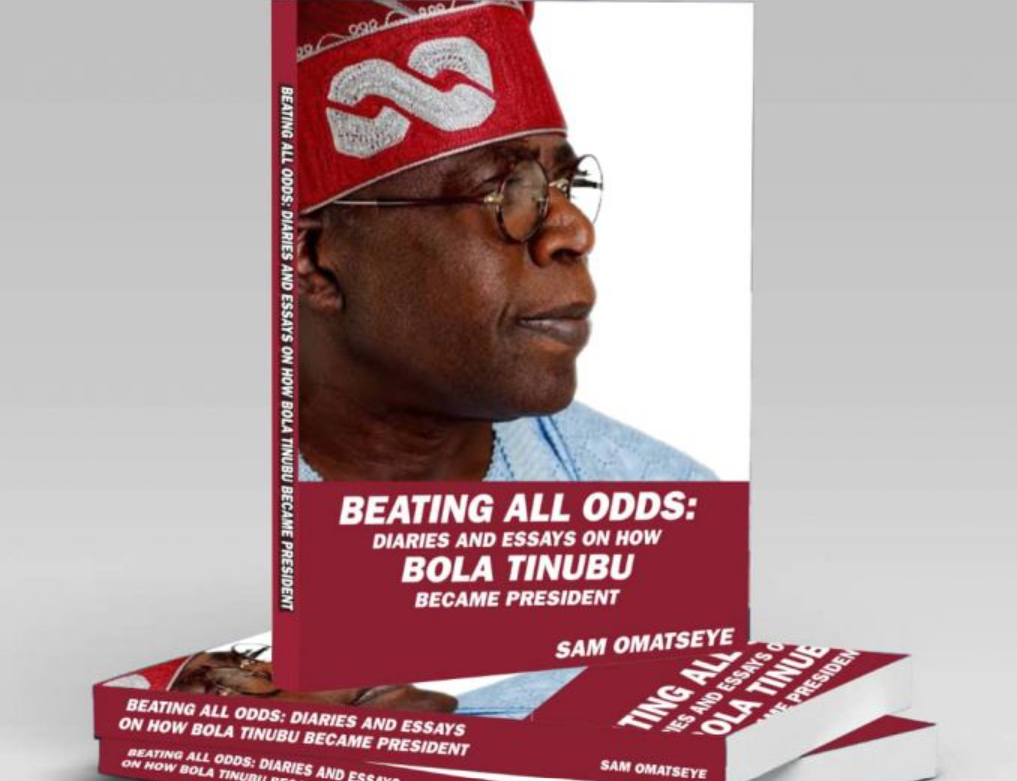Competition is about to have a new meaning in the Pay TV industry. At the launch of Silver Lake Television (SLTV) in Abuja, last week, Secretary to the Government, George Akume, said the new entrant has promised to affect the market with service quality and affordability.
The launch could be a strong indication that the government wants to play a more visible role in the industry and position it to be more profitable to investors and other stakeholders, including talents and content makers, while giving the subscribers maximum satisfaction for their subscription.
There is yet another level of euphoric concerns. Nollywood has been on the ascendancy. The coming of SLTV is yet another opportunity for the industry to saloon its wares which have attracted global attention, even prompting the Tinubu administration to create a special Ministry of Culture and Creative Economy to aggregate the opportunities. Yes, Nollywood will be the ultimate beneficiary of a Pay TV industry that is more competitive.
“SLTV has responded very loudly and clearly, and from the information made available to me, they are willing to give their fellow compatriots real value for their money in terms of service quality and affordability.
Advertisement
“Nigeria is an opportunity that is impossible to replicate or find elsewhere in any part of the world. The Federal Government wishes to assure management of SLTV of her full backing as they continue to do legitimate business in Nigeria’s broadcast industry,” Akume, who was represented by his Senior Special Assistant, Technical, Prof Babatunde Bernard, said at the occasion.
SLTV is being promoted by Metrodigital whose owner, Dr Ifeanyi Nwafor, observed that the Pay TV industry in Nigeria has not witnessed real growth over the years because of policies and legal framework that negatively impact the sector, pointing out that the current administration has started on a note that could attract investors to the industry
He is positive that his programming mix of 55 channels and creative price offering, starting from N2, 500 on a pay-per-view platform, will shake up the industry and swing it to the advantage of SLTV.
Advertisement
Nearly everybody agrees there has been some lethargy in the industry that needs a shaking, although this is largely attributed to monopoly practices, according to SLTV promoters, who are poised on making what seems an entrenched status quo uncomfortable.
The pay TV industry has long been plagued with a litany of accusations: of a regulator, which is the National Broadcasting Commission (NBC), that has created a monopoly; of a monopoly that fleeces the subscribers after cornering the market; and of subscribers that are helpless because of the dominant practices of a monopoly, and are unhelped by a regulator that looks so weak. The other extreme end of thought is that the monopoly service provider is a foreign entity that doesn’t mean well for the nation.
There is a fixation of thoughts in the industry and, in fact, there are some people who believe that the Nigeria Broadcasting Code of 2019, which is due for a review, has made some provisions to assuage such line of reasoning.
But what is the status of the industry? Has the NBC created a monopoly? The coming of the NBC in 1992 was to create competition and a level playing field in the broadcast industry. In spite of the complaints, competition is robust in some segments of the industry which, unfortunately, does not include Pay TV.
Advertisement
This is not the failure of the NBC, if you permit me. Rather, it is the failure of an economy that hardly makes provisions for local players, the volatility of an industry whose services must be flavoured with contents that are purchased in dollars, and the frustrations of local investors whose efforts do not enjoy enough gestation period to support a business for the long term.
I will give only two examples here. There was once a HiTV promoted by my firend, Toyin Subair, who thought he had a magic wand to unlock the sector and force competition after a long study of, and stay in the industry even as a lawyer providing essential services.
Agile and rambunctious, HiTV gave us joy for a time as a near perfect alternative, then it went in a poof, leaving Subair and his co-investors to lick their wounds while strategizing for another opportunity to return to the market. You may allege all you can, but this wasn’t about the HiTV promoter but about a market not ready for such delicate and structured investment that could take a while to yield returns.
There is or was a TSTV which does or did not possess that kind of capacity or force of HiTV but it boasted patriotism and sustainability. As I write, TSTV has been off air for months, leaving a void that could be difficult to fill on return. TSTV is witnessing a down time and it’s not a good story for the industry.
Advertisement
Programming is the life wire of Pay TV. Content is king in the modern Pay TV business. Good, premium content, which could be local or foreign but well processed and packaged into channels to arrest TV viewing eyes. Thankfully, the nation’s entertainment industry has positioned itself to feed the demand of TV programming. But foreign programming is not that kind and tolerant. The operator must go to the international programming market, like MIPTV, to stake his dollar strength. It is a complex market, my friend, and very harsh.
This is the market that SLTV wants to play in. It’s not about patriotism. Technology may offer an advantage but programming is the real deal. Creative marketing may play a role but content aggregation and professional processing and packaging may be the deciding factor. Government support will be good but the Nigerian government will need to find out how nations encourage their international broadcasters. Not with sanctions.
Advertisement
So who is SLTV? Simple definition. SLTV is the little David trying to play in the field of giants. But, dear friend, David had a preparation time before going for Goliath’s head. He killed the lion and a bear. He was being prepared for the big one and the most significant day of his life.
The first time I heard of Metrodigital, promoter of SLTV, was sometime in July 2022, when the small organisation got a judgement from an Appeal Court in Port Harcourt against Multichoice and the NBC where it prayed the court to cause the regulator to direct Multichoice, the biggest Pay TV operator in Africa, to sub-license some channels to Metrodigtal, based on some sections of the 6th Edition of the Nigeria Broadcasting Code.
Advertisement
Although I described the case as a David versus Goliath fight, I was impressed by the young organisation which was determined to flex the content of the Code in order to find some position of competition or even advantage in the Pay TV market.
For instance, the Code says in 6.2.5: To ensure fair and effective competition to all platforms at an agreed fee, rights owner, operators or exclusive licences to Live Foreign Sporting Events shall offer rights to Broadcasters on the different platforms inclusive but not restricted to the platforms stated below – Satellite (DTH), Multipoint Microwave Distribution System (MMDS), Cable (Fibre Optics), DTT (Terrestrial), Internet, Mobile, Internet Protocol Television (IPTV) and Radio.
Advertisement
I will observe here that no broadcast document has been as contentious as the 6th Edition of the broadcast Code, the process of its formation, the subterranean moves and the controversies. Be that as it may, it will be exciting to see how SLTV excites the market with its business plan. But I had warned in one of my interventions that it will be difficult to base your business plan on somebody’s ideas, plans, products and programmes, especially in a competitive market.
In the unfolding drama and expected competition in the Pay TV sector which seems to have attracted the imprimatur of the government, the response from the regulator has been measured and tempered.
Speaking at the occasion, chief regulator of the broadcast industry, Charles Ebuebu, informed that the NBC was reviewing some policies and regulations in order to create a more competitive ecosystem where the consumer will be the one making choices. While noting that the Commission was prepared to encourage a pay-per-view option in the industry, he suggested that such a decision may be informed by the agreements entered into by operators during content rights acquisition.
I am pained by suggestions that a foreign company is exploiting Nigerians in the Pay TV industry. I do not know what many of us know about the coming of Multichoice but I am sure that Dewumi Ogunsanya, Chairman, and John Ugbe, Chief Executive, are in a better position to speak about their company.
My final point is to alert the NBC that tech neutrality is always a better choice for a regulator, I mean, concerning pay-per-view, while adding that a competitive market will always enjoy some segmentation which provides for big players and small players, and even keep the doors ajar for new entrants into the market.
Views expressed by contributors are strictly personal and not of TheCable.
Add a comment







